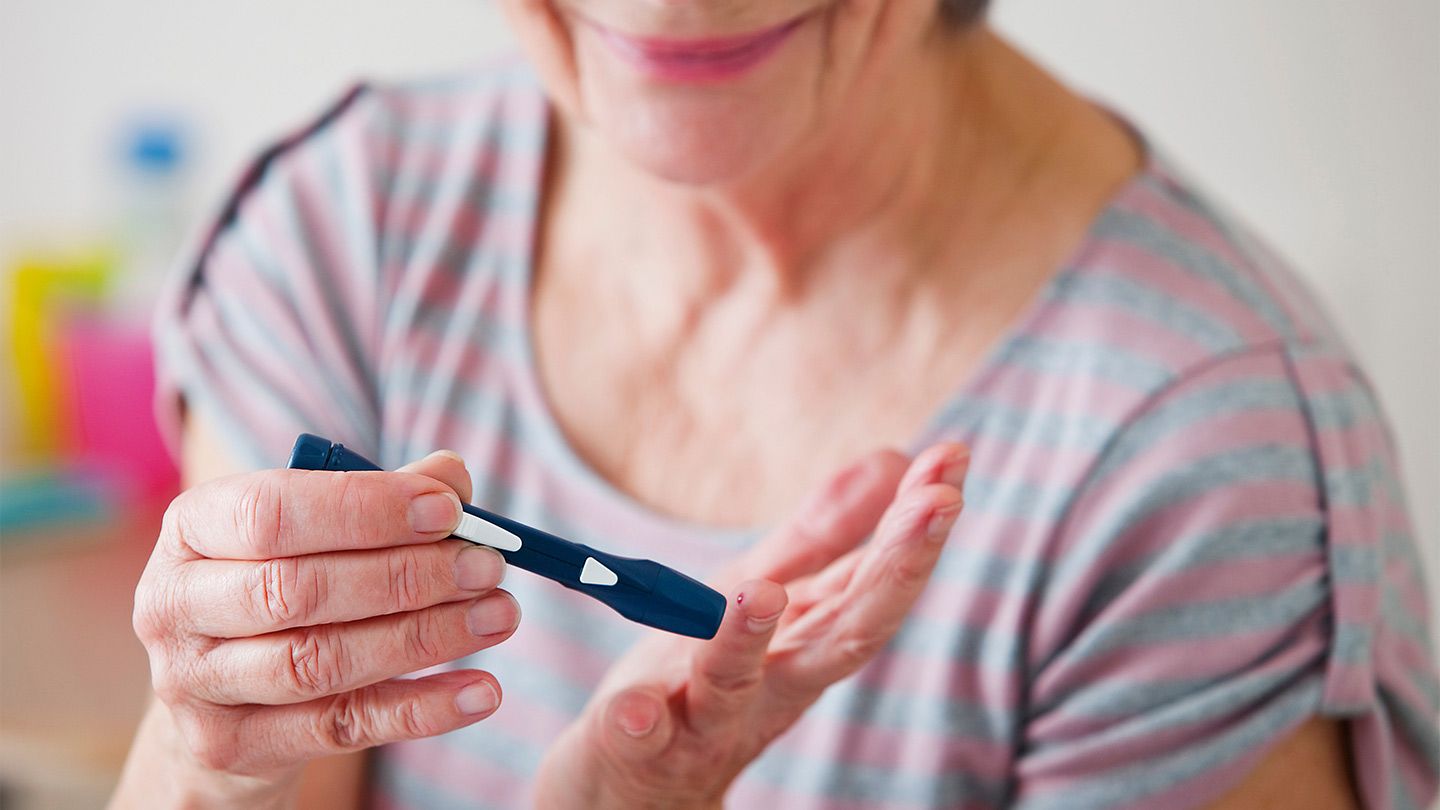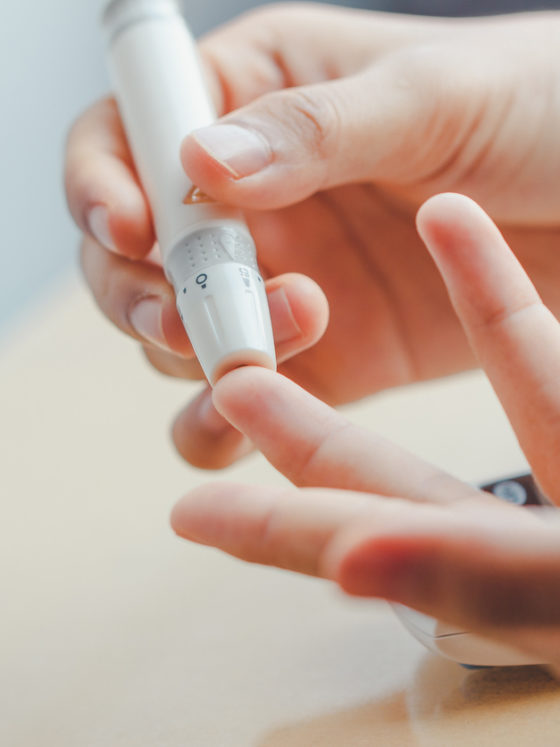To regulate the amount of sugar in the blood, you should know the permissible range of blood sugar. Random blood sugar testing should be done along with the overall result of HbA1c testing every three months. A persistent high HbA1c level is a cause of concern and can hurt the body. Some of its complications are vision loss, heart disease, nerve damage, kidney disease, and foot and leg amputation. It is because of all these complications diabetic care becomes very important.
Know your glucose level
Glucose is an energy source for the body when it’s present at normal levels. But it can be a silent killer if not tamed. For any individual, whether they have diabetes or not, the blood sugar range is supposed to be 90-130 mg/dL before meals, and after one to two hours of having meals, your blood sugar should be less than 180 mg/dL. Any sugar levels higher than normal are unhealthy. Levels that are higher than normal, but have not reached the bracket of diabetes, are called prediabetes. This condition can soon become diabetes if not controlled by a healthy lifestyle and sugar free biscuits diet, and such people are also more prone to heart diseases.
Doctors can diagnose diabetes by:
- Fasting glucose test: An overnight fasting is required for this. A fasting blood sugar level of 99 mg/dL or lower is normal, 100 to 125 mg/dL indicates you have prediabetes, and 126 mg/dL or higher indicates you have the condition.
- The glucose tolerance test is another method where you will be made to have a sugar drink after fasting and then tested. The results indicated as- Below 140 mg/dL: normal blood sugar, Between 140mg/dL and 199mg/dL:impaired glucose tolerance, or prediabetes, 200mg/dL or higher: Diabetes.
- Also, the doctor performs random blood sugar tests. You can do this test anytime, and fasting is not required. If the level is above 200 mg/dL, along with an increased frequency of urination, excessive thirst and hunger, vision problems, rapid heartbeat, and you have sudden gain or loss of weight, it implies that you confirm the diagnosis.
How to tailor your diabetes management
To achieve the targeted blood sugar, you should follow a balanced diet, exercise regularly, and take your diabetes medications on time. This is a lifelong condition, and one must manage it to lead a trouble-free life.
- Reducing high-carb foods:
Limit your rice, pasta, cookies, and white bread that are high in carbohydrates. Eat a wholesome diet constituting carbohydrates, protein, fat, and fibre which is beneficial in managing a normal range of sugar. Also, eat your meals at an interval of 3-5 hours. Healthy snacking, too, will keep your stomach full and reduce cravings. Substitute aerated drinks with water. - Regular exercise:
Physical activities burn energy; thus, glucose gets used up. Exercise at least 30 minutes a day and avoid sitting for long. Regular exercise helps to maintain the normal range of sugar. Brisk walking, swimming, dancing, cycling etc., are also beneficial. - Medical conditions:
Certain conditions caused due to the imbalance of hormones, like PCOS, cause fluctuations in the hormones and affect normal sugar levels. Treating the condition and following a healthy lifestyle will help. - Medications:
Steroids that are used to treat rheumatoid arthritis, inflammatory bowel diseases, allergies etc., can affect the normal range of sugar in the blood. Also, certain medicines for treating high blood pressure, lower cholesterol and birth control pills cause changes in the sugar level. Always discuss with the doctor about these medications and avoid over-usage.
5. Reducing stress:
High levels of stress hormones might inhibit the insulin-producing cells in the pancreas and interrupt insulin production. Practice meditation, self-care, enjoying music etc.
- Reduction in alcohol consumption:
Alcohol consumption causes an increase in insulin secretion, which leads to low blood sugar. This is very dangerous, and one should identify such instances as dizziness, Blurred vision, Shaking of hands and feet, palpitations and difficulty in breathing, confusion etc.
Why are elevated sugar levels bad for you?
High sugar levels can impair almost every organ in your body. It can cause kidney disease that requires dialysis. It can also cause sudden strokes, heart diseases, vision impairment, weak immune system, nerve damage, loss of circulation to hands and legs, delayed wound healing etc. The pancreas is permanently damaged, and it cannot produce insulin. Also, it causes the hardening of the blood vessels, which increases the risks of heart disease.
The diabetes care plan is very important for hassle-free management of the condition. You can meet up with your healthcare professional and opt for a plan to record your experiences, discuss how you feel, set goals, and create an action plan to help you manage your diabetes. Even your doctor can describe the available and suitable treatment options that are available to you. A care plan is a written document of all these discussions, goals and actions that can be referred to in the future.
The culmination:
The exact cause of diabetes is unknown. People with diverse bodies can also develop diabetes. Sugar builds up in the bloodstream and causes complications in the human body, as the pancreas doesn’t produce enough insulin. Diabetes may be caused by a combination of genetic or environmental factors. Although there’s no complete healing for this, studies show some people can reverse it through diet changes and weight loss. Also, this doesn’t mean that it is cured. Diabetes care needs continuous monitoring of the sugar level, a strict diet and regular exercise. These are a must for people who are prediabetic and diabetic. A cheerful, positive mind and healthy lifestyle can bring you back to your normal self.











